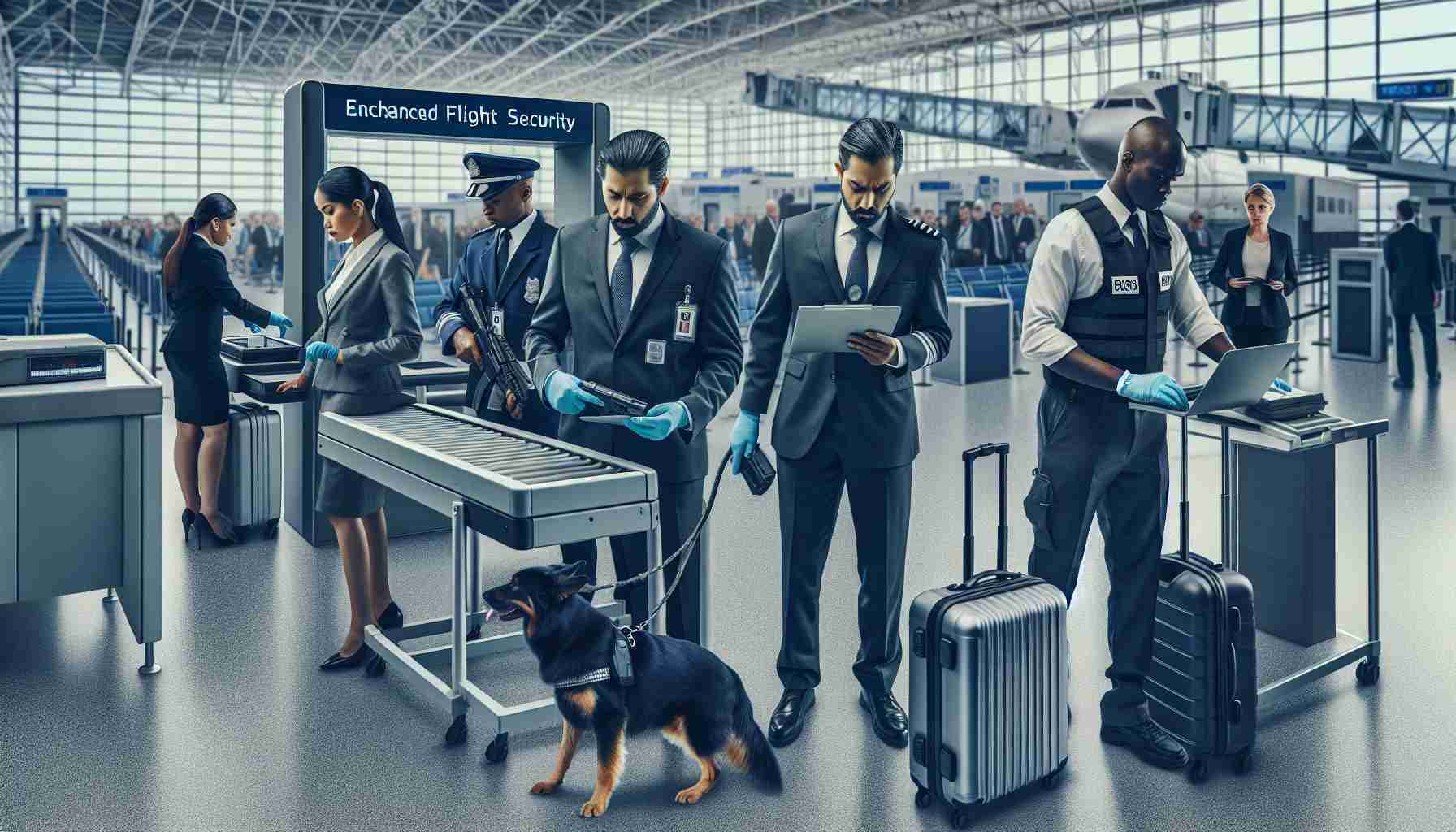Following a recent series of anonymous threats, multiple leading Indian carriers have ramped up security measures to ensure the safety of passengers and crew. The threats, received by 25 flights in total, claimed the presence of 12 potential bombers dispersed across various routes. Urgent action was taken by authorities, resulting in the blocking of the source responsible for these alarming messages.
While the specific details of the threats have caused disruptions and prompted additional precautions, airlines such as IndiGo, Vistara, Air India, and Akasa Air have collaborated closely with security agencies to navigate these challenges. Passengers on the affected flights were promptly disembarked safely, ensuring their well-being throughout the investigations.
As a response to the recent surge in threat messages targeting aviation in India, the Bureau of Civil Aviation Security has initiated discussions with airline representatives to fortify preventative measures against such incidents. Plans are underway within the civil aviation ministry to establish stringent protocols to deter future hoax threats and hold perpetrators accountable, potentially resulting in placement on the no-fly list to safeguard the integrity of air travel.
Authorities Continue to Enhance Flight Security Measures Amid Ongoing Threats
In light of the recent anonymous threats targeting multiple Indian carriers, authorities have taken additional steps to bolster flight security and protect passengers and crew onboard. While the initial response to the threats was swift in terms of addressing the immediate concerns, ongoing vigilance is crucial to combat potential risks and ensure the safety of all individuals involved in air travel.
What are the key challenges associated with implementing increased flight security measures in response to anonymous threats?
One of the primary challenges lies in accurately assessing the credibility of each threat received. Authorities must carefully evaluate the legitimacy of the claims while avoiding unnecessary disruptions to flight operations and inconvenience to passengers. Balancing the need for heightened security with maintaining efficiency in air travel poses a complex challenge that requires a delicate and strategic approach.
What are the advantages of ramping up security measures in response to such threats?
Enhanced security measures serve as a proactive deterrent against potential security breaches and instill confidence among passengers regarding their safety while flying. By demonstrating a proactive response to threats, airlines and authorities showcase their commitment to prioritizing the well-being of passengers and crew members, ultimately enhancing trust in the aviation sector.
What are the disadvantages or controversies associated with implementing stringent security protocols?
Stringent security measures may lead to increased operational costs for airlines, which could potentially be passed on to passengers in the form of higher ticket prices. Additionally, the implementation of overly strict security protocols has the potential to create a sense of unease or inconvenience among travelers, impacting the overall passenger experience. Striking a balance between effective security measures and ensuring a seamless travel experience is crucial to mitigate these drawbacks.
For more information on aviation security and current threat mitigation strategies, visit International Civil Aviation Organization.
 The Bold Transformation: How Netflix’s New Design Will Change the Way You Discover Content
The Bold Transformation: How Netflix’s New Design Will Change the Way You Discover Content  Chinese Titan BYD Charges Past Tesla in Europe’s Electric Arena
Chinese Titan BYD Charges Past Tesla in Europe’s Electric Arena  How Apple’s Dance with China’s Market Shifts the Global Tech Landscape
How Apple’s Dance with China’s Market Shifts the Global Tech Landscape  The Spark Behind Schenectady’s Electrifying Weekend: A Deep Dive into the Future of Cars
The Spark Behind Schenectady’s Electrifying Weekend: A Deep Dive into the Future of Cars  The Unseen Journey: How Aurora’s Self-Driving Trucks Are Paving New Roads in Freight
The Unseen Journey: How Aurora’s Self-Driving Trucks Are Paving New Roads in Freight  Epic Games’ Bold Move: Revolutionizing Developer Revenue with New Policies
Epic Games’ Bold Move: Revolutionizing Developer Revenue with New Policies  Lucid Group’s Wild Ride: Can Luxury EVs Thrive Amid Economic Uncertainty?
Lucid Group’s Wild Ride: Can Luxury EVs Thrive Amid Economic Uncertainty?  BYD’s Record-Breaking Feat: Revolutionizing India’s EV Landscape with Sealion 7
BYD’s Record-Breaking Feat: Revolutionizing India’s EV Landscape with Sealion 7  The Surprise Tesla Tax: Washington State’s Bold New Move Shakes EV Landscape
The Surprise Tesla Tax: Washington State’s Bold New Move Shakes EV Landscape 